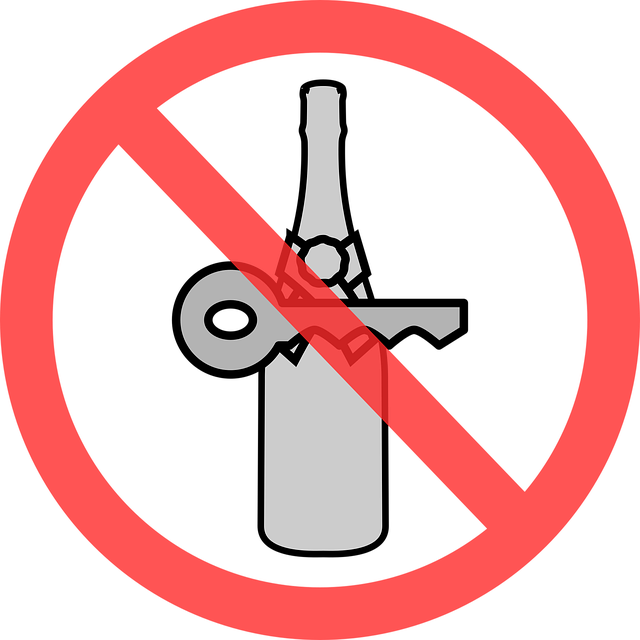For high-risk reoffenders facing DUI charges, understanding legal rights during traffic stops is vital for de-escalation and maintaining privacy without immediate consequences. While refusal of certain requests can impact later evidence in court, balancing rights with safety is crucial. Law enforcement follows stringent protocols due to unique challenges posed by such individuals, focusing on deterring drinking and driving while respecting innocent drivers' rights. Prior convictions significantly influence traffic stop dynamics, leading to heightened scrutiny. Staying calm, remembering rights, and refusing compromising requests are effective strategies for high-risk reoffenders. Consulting a skilled attorney specializing in high-risk DUI management can provide tailored guidance to protect these rights.
Traffic stops can be stressful, especially for high-risk reoffenders. Understanding your rights during these encounters is crucial for ensuring safety and fairness. This article delves into the intricacies of traffic stops, focusing on rights for all drivers, with a special emphasis on managing DUI (drunk driving) situations effectively. We explore how prior convictions impact traffic stops and provide strategies for navigating these challenges safely, specifically tailored for high-risk reoffenders. Key topics include best practices during stops and understanding legal protections.
- Understanding Your Rights During a Traffic Stop
- High-Risk Reoffenders and DUI Management
- The Impact of Prior Convictions on Traffic Stops
- Strategies for Safely Navigating a Traffic Stop as a Reoffender
Understanding Your Rights During a Traffic Stop

During a traffic stop, it’s crucial for all drivers to be aware of their rights, especially those considered high-risk reoffenders or facing DUI charges. Understanding your legal protections can help de-escalate potentially tense situations and ensure your rights are upheld. In many jurisdictions, law enforcement is required to have reasonable suspicion before pulling you over, which means they must have a valid reason for the stop based on observed violations or behaviors.
Knowing your rights enables you to remain calm and cooperative while allowing you to politely refuse certain requests if they infringe upon your privacy. For instance, you have the right to refuse field sobriety tests or breathalyzer screenings without fear of immediate consequences. However, refusal may impact your case later, as it could be used as evidence in court. It’s a delicate balance between exercising your rights and ensuring safety during a traffic stop, especially when dealing with sensitive issues like DUI management for high-risk individuals.
High-Risk Reoffenders and DUI Management

In cases involving high-risk reoffenders and individuals with a history of driving under the influence (DUI), law enforcement must adhere to stringent protocols for traffic stops. These individuals often pose unique challenges during encounters, necessitating heightened caution. Police officers are trained to recognize potential red flags and conduct thorough assessments to ensure public safety without infringing on the rights of innocent drivers.
Effective DUI management requires a balanced approach. Law enforcement agencies implement strategies to deter drinking and driving while respecting the legal rights of suspects. This delicate equilibrium ensures that high-risk reoffenders are held accountable, and any potential violations during traffic stops are handled with care and in accordance with the law, protecting both public safety and individual liberties.
The Impact of Prior Convictions on Traffic Stops

Prior convictions can significantly impact the dynamics of a traffic stop, especially for individuals classified as high-risk reoffenders or those facing DUI (driving under the influence) charges. Law enforcement agencies and judges often consider a person’s criminal history when determining their potential for reoffending. Therefore, a previous conviction may lead to more stringent scrutiny during routine traffic stops.
For high-risk reoffenders, every stop can be a critical moment where law enforcement must balance public safety with constitutional rights. In the case of DUI charges, officers might employ enhanced protocols to manage these situations, ensuring the safety of the community while adhering to legal boundaries. Such convictions also emphasize the importance of knowing and asserting one’s rights during stops to navigate potential legal complexities effectively.
Strategies for Safely Navigating a Traffic Stop as a Reoffender

When facing a traffic stop as a high-risk reoffender, it’s crucial to stay calm and remember your rights. As a prior DUI offender, law enforcement may subject you to heightened scrutiny. Strategies for navigating this situation include remaining polite and respectful throughout the interaction, ensuring your vehicle is in compliance with all laws, and refusing any requests that could compromise your rights or safety. Keep in mind that anything you say can be used against you, so exercise your right to remain silent.
For high-risk reoffenders, DUI management becomes even more critical. Be prepared for additional checks, such as field sobriety tests and breathalyzer tests. If you’ve consumed alcohol or drugs, it’s essential to know the legal limit in your jurisdiction and understand the consequences of a failure to comply with testing requests. A skilled attorney specializing in high-risk cases can provide invaluable guidance tailored to your situation, ensuring your rights are protected during what could be a stressful encounter.
Understanding your rights during a traffic stop is crucial, especially for high-risk reoffenders and those facing DUI charges. Knowing how prior convictions can impact interactions with law enforcement empowers individuals to navigate these situations safely. By following strategic guidelines, such as remaining calm, verifying the officer’s credentials, and knowing your legal protections, reoffenders can manage their DUI cases more effectively while ensuring fair treatment throughout traffic stops.






